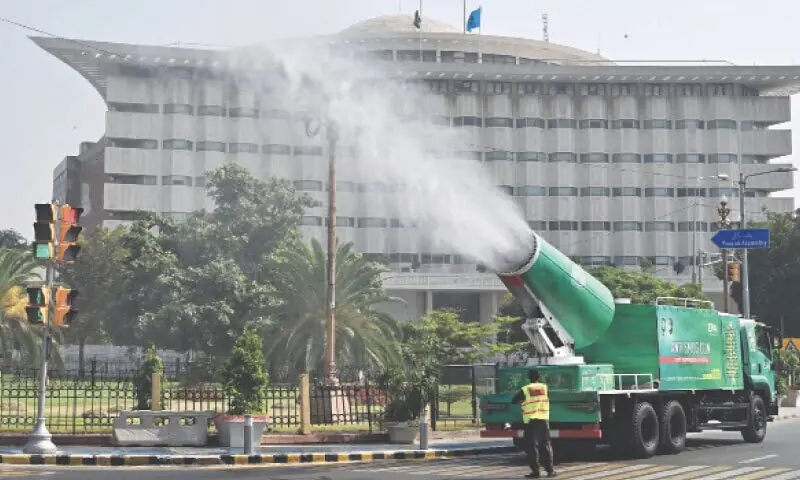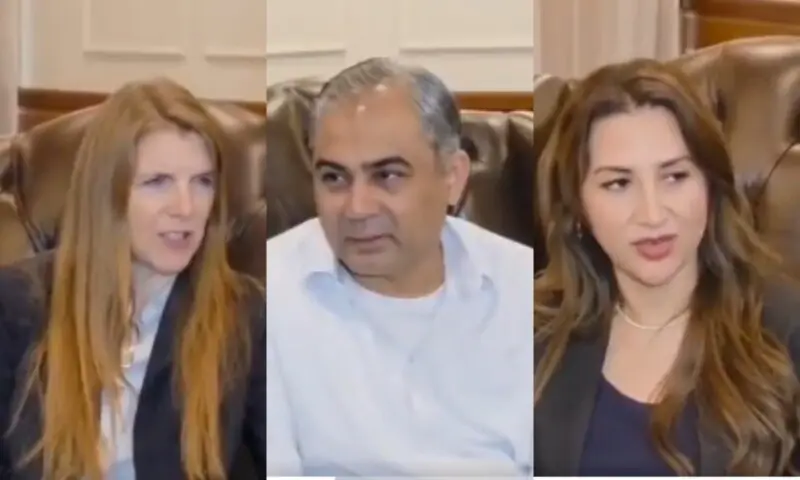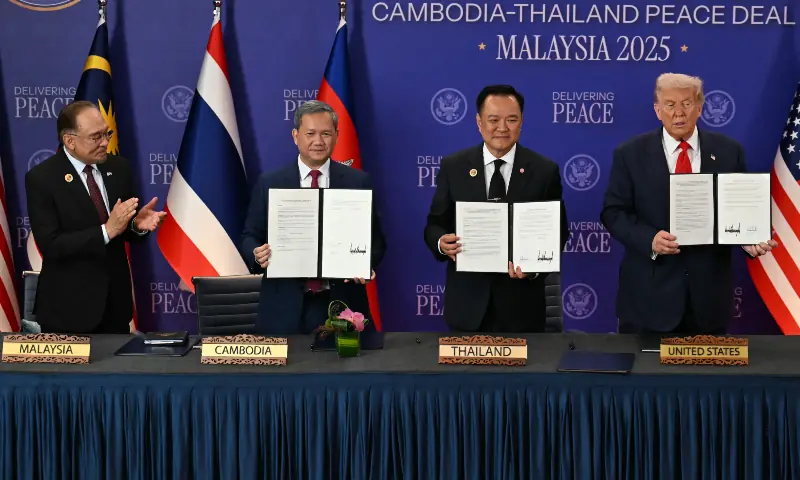The Punjab government revised school timetables starting Monday in response to worsening smog across the province, with daily sessions now starting at 8:45 am.
Lahore has been ranked as the world’s most polluted city for the past three days, with air quality dropping to dangerous levels as smog blanketed the city and the overall Air Quality Index (AQI) reached 412, prompting health warnings and a province-wide crackdown on pollution sources.
The Punjab Disaster Management Authority (PDMA) has issued a high alert in the eastern districts of the province including Lahore, Gujranwala, Sheikhupura, Kasur, Nankana Sahib, Faisalabad, Multan, Bahawalpur, Rahim Yar Khan and Khanpur. According to PDMA Director General Irfan Ali Kathia, the intensity of smog is expected to increase from November to mid-December, citing forecasts from the Meteorological Department.
The announcement was made by Punjab Education Minister Rana Sikandar Hayat in his X account in light of the current smog situation.
“Winter class hours: 8:45 a.m. to 1:30 p.m.,” the minister announced.
Separately, commenting on the smog situation, Punjab Chief Minister Marriyum Aurangzeb said during a press conference that the province now had a comprehensive digital and AI-based forecasting system.
He said it had been developed using data from previous years, adding that it was accessible to the public through the air quality portal and that the Environmental Protection Agency (EPA) published it a day in advance.
Reflecting on opinions on the smog situation, he said: “First of all, all those who have suddenly become environmental experts these days and publish reports or make statements as they please, I want to clarify that smog is a seasonal phenomenon.”
He said the seasons last only three months, when the east-west eastern corridor causes temperature inversions and cold air forms a lid over the atmosphere.
“Within that lid, polluting particles are trapped because the air above is cold. That lid, together with atmospheric pressure, creates a haze that we call smog,” he explained.
Marriyum emphasized that the people of Lahore and Punjab must realize that “it cannot be that yesterday the AQI was 160 and today, due to local pollutants, it has suddenly jumped to 380.”
He explained that it is common for pollution levels to increase early in the morning due to colder temperatures, but as the day warms and upper air conditions change, the air becomes denser and “the particles begin to disperse.”
The minister stated that smog weapons are used only as an artificial and temporary measure.
“Earlier, smog was managed during the season by closing schools, restaurants and imposing lockdown-like restrictions. But for the first time, we are not only managing smog during the season without resorting to lockdowns; we are also improving Lahore’s air quality index,” he added.
Marriyum said the government’s work extended beyond the smog season. “Not only are we active during these three months,” he said, “but we conduct smog mitigation efforts year-round.”








